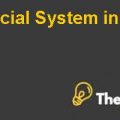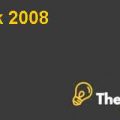
The Case of Messer Griesheim
Family Business and Private Equity: Conflict or Collaboration?
Problem Statement
The Messer Griesheim was exposed to corporate governance issues because it had been partly owned by the family and a consolidating market for industrial gases. In addition to this, Messer Griesheim was also facing problems of restructuring of its existing business for the exit of equity investors.
Analysis
This section starts with the analysis of a typical family-owned business and then goes on to discuss in general the strengths and weaknesses of a family-owned business; after that three circle model is used to analyze the positioning of different individuals in the business. Later it evaluates the restructuring strategy adopted by the Messer Griesheim followed by an analysis of corporate governance structure.
Family Generations
Three generation of Messer family were involved in the business, initially the company was formed by Adolf Messer in 1898, later on, in 1953, the family business was transferred to second generation Mr. Hans Messer, son of Adolf Messer, and finally in 1997, the business share was transferred to the third generation, Mr. Stefan Messer after the death of Hans Messer. Mother of Stefan Messer, Ria Messer was also involved in their family business and took her part in the development of their family business.
Informal Business Culture
Since in a family business the culture tends to be very informal, hence it is easy to bring innovation into business by sharing the ideas of management and the owners. This is done to have direct contact with the management; hence enabling them to freely share their views about the operation of a business and to bring possible improvements in business operations so that business objectives are achieved effectively.
Centralization of Control
In a typical family business, origin of control and authority is central to the business owner in order to make it easier for the owners to monitor and control the business process closely and to identify the improvement areas in business operations.
Lack of Segregation of duties
As owners want the full control of the business therefore; they try to occupy the major roles in the organization and to do so they ignore the importance of segregation of duties as segregation of duties is necessary for the proper implementation of controls and standard procedures.
Agency Cost
In family-owned business, owners are directly involved into daily business activities and closely monitor the ongoing business activities therefore; the cost of monitoring the performance of managers to confirm that they are performing in the best interest of shareholders is avoided, nonetheless this cost has to be incurred in case of publicly held companies.
Effective Communication
Centralized controlling of the family business makes business communication easier within the organization and informal relations of owners with managers and employees let them communicate with each other. Hence goals and objectives of the organization are effectively communicated to all levels of management.
Family Commitments (a competitive advantage)
Commitment of family members toward the family business guarantees the success of their business, in addition to this, the enthusiasm of family members for their family business enables them to put every possible effort for the success of their business.
Increased Governance Costs
Since family owner may favor other family members for top management position, who may not be capable of the position concerned in order to gain some family benefits in terms of a higher salary; therefore to avoid the family conflict of this nature, governance bodies need to be established for the monitoring of such conflicting issues.
Ease of Succession Planning
Family business owners always keep upgrading and familiarizing a couple of their family members with their business, as successors of the key business positions. If there is no such succession
planning then it will result in a disaster for the company to manage the business operation in case of death of the business owner.
Family Conflicts
In typical family business there often arise conflict in taking strategic business decisions where individual family members try to get their own idea/strategy implemented and the one who fails to do so tries not to work towards the successful implementation of selected strategy or even tries to leadd that strategy towards failure..............................
This is just a sample partial case solution. Please place the order on the website to order your own originally done case solution.












